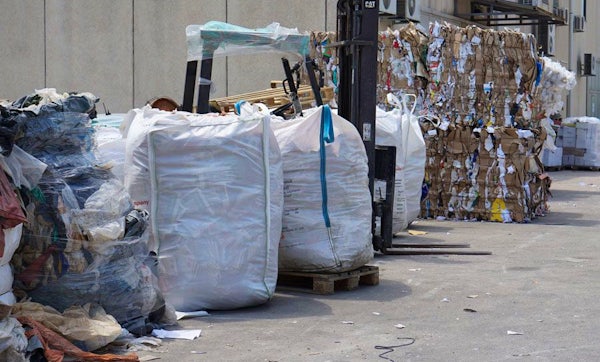There are a lot of myths surrounding recycling and whether this actually takes place in Croatia, particularly in Dalmatia. We had a chat with key staff members at Mali Luka and CIAN - companies that process non-hazardous and hazardous waste respectively in Split and surrounding areas to understand the process and issues a little better.
Mali Luka is one of the leading processors of packaging waste in Dalmatia and was founded in 2008. The company now collects around 3000 tonnes of packaging waste annually, with that amount increasing year on year by approximately 20%. Owner and founder, Ivanka Ajduković, tells us more.
Can you tell us about your company?
The main business activity of Mali Luka doo is the management of non-hazardous waste in the area of Splitsko-dalmatinska županija. We are focused on collecting packaging waste (cardboard and foil) and waste paper. There are currently 13 employees in our company.
Considering the amount of time you’ve invested into your business, do you see any improvement in local community habits?
As far as the local community is concerned, the changes are visible, mostly in ‘small’ waste producers and ordinary people, who are increasing their awareness of the importance of environmental protection and cleanliness. Likewise, there is a change in processing the waste with many companies, partly due to environmental awareness, and largely because of legal regulations and inspection controls that have been put into place.
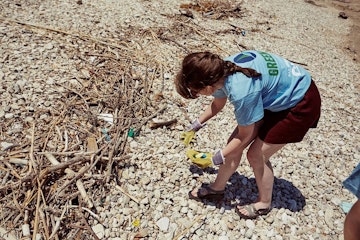
Can you describe the waste processing process done by your company?
Our work is done by collecting packaging waste in containers and cargo trucks delivered to our facility in Dugopolje where they are classified by categories and prepared for transportation to recycling plants. Office paper is collected in specific boxes arranged at offices and agreed locations upon request, where the boxes are then emptied in the van and taken to the facility in Dugopolje. Paper is also broken down into categories(white paper, cardboard etc.), and municipal waste, if irresponsibly placed in boxes that are solely for paper, is collected and disposed of accordingly.
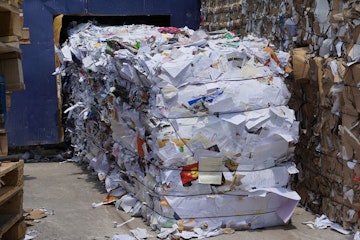
With whom do you cooperate with and where do you see the problems?
The area of our work is actually with the "producers" of this type of waste, which is a fairly wide area, ranging from commercial and manufacturers to citizens. There is a problem with the quantity and manner of the collected waste. The problem is namely due to the profitability of the business, meaning it is necessary to collect as much waste as possible in a small area. For example, in the paper-gathering buildings, tenants do not want to set up several boxes because of "mess", but they often call us to empty those boxes, which costs us time and effort if the quantity is really small. It is a similar situation with small companies and cardboard waste. The problem is inadequate preparation of waste (i.e. no-one will appoint one worker to prepare the waste for collection).
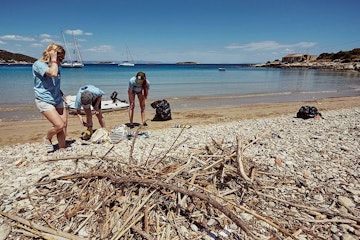
How do you solve the problems you mentioned? What do you think the state should to help?
We are currently solving this problem by having our vans complete frequent tours of towns and locations. A better solution would be to have adequate vehicles that can immediately sort rubbish, and/or responsible owners who can adequately prepare their waste. The solution would also be to charge for the collection of small quantities of waste. This is still impossible in our country because all waste can be de-commissioned without any sanctions and put into communal waste. The government needs to implement bans and penalties for improper disposal of waste. Likewise, the state should subsidise companies that are trying to contribute to the solution.
What else could be done to speed up the process of proper waste disposal and collection?
For me, it is very important that less waste is left. Large systems do not see the importance of this, but small companies like ours do and can dispose of waste very well.
There is a need to encourage the private sector. This job is physically demanding, requires constant investment and fast solutions to combat any situations that arise. The communal system is sluggish, yet state companies are financed by communal services so there is money available.. They have shifted the responsibility of waste separation to the citizens, without offering them quality conditions to do so (education, enough tanks, regular disposal). There is always a need for the ongoing education of individuals and local communities on waste separation guidelines.
How do you see Green Sail Initiative?
I think your problem-solving initiative in the marina is certainly welcome and that it will certainly improve the image of the Adriatic Sea in the eyes of sailors and make a big contribution to environmental protection. I also think that this idea is really worth the effort. Our sea has no alternative. We live from it. From my experience for all waste-related jobs it takes a while; a good balance of work and vision, and perseverance until the first results are seen. Only when it comes to separating and collecting waste do we realise just how much there is. And there will always be waste. We just need to know how to use it.
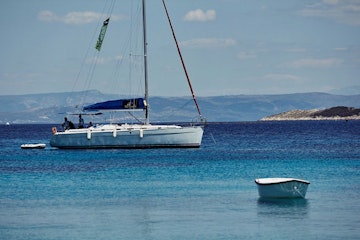
Robert Graovac is the Manager at CIAN, a company that specialises in the collection, treatment and disposal of hazardous waste in Split.
Can you tell us what does CIAN d.o.o. exactly do?
CIAN specializes in the collection, treatment and disposal of hazardous waste and for the remediation services of sea and land pollution, as well as other industrial cleaning. Non-hazardous waste is collected in small quantities and it is primarily related to waste iron, metals, plastics, biodiesel used edible oils.
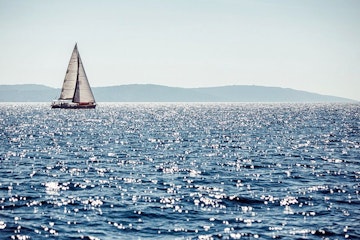
How much hazardous waste you usually collect annually?
We collect about 5500 tonnes of hazardous waste annually (80% of oily water from vessels and oil / water separator) and about 1500 tonnes of non-hazardous waste (about 1000 tonnes of oil and grease from the kitchen ).
Can you clarify the process a little bit for us?
In our facility in Solin, we process oily waters from vessels and separators from the mainland, in the amount of about 5000 tonnes per year, whereby the product is obtained by purified water and the residues of hydrocarbons are used as alternative fuels in cement production. Using an organized collection system provided by the Environmental Protection Fund, we collect waste motor oil and waste batteries free of charge from citizens and legal entities. Grease trap content is also processed and a combination of organic / impure waste is sent to biogas production plants. We also collect about 120 tonnes of used edible oil that is sent to biodiesel producers for recovery.
After being collected and processed what happens next with the hazardous waste?
All other types of hazardous waste are sent to export for disposal- most often in Austria and Germany- along with waste paint, impurities, various chemicals, packaging contaminated with hazardous substances, waste solvents, contaminated soil and stones and other manufacturing waste. From marinas in Dalmatia we usually collect the following types of waste: wet water from vessels, used motor oils, contaminated packaging, waste paint and solvents, waste batteries, waste water treatment facilities and used edible oils.
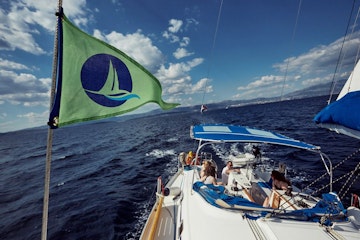
What about other types of waste?
We have just started collecting biowaste, so we do not have concrete data. Collected waste will be sent to biogas production plants in the future. With regards to recycled waste, we take rare and small quantities - primarily metals and plastics (up to 500 t per year) - which we supply to authorized repairers. We do not have special vehicles for the same for now.
Processes are happening in Croatia, however as waste issues grow, so does the pressure on resources. If we all reduce waste, re-use and recycle, facilities will have less waste to process, and our environment will thank us for it! Join our Green Sail movement by requesting a flag to fly on your yacht, starting a conversation about recycling, or becoming a Green Sail ambassador!
